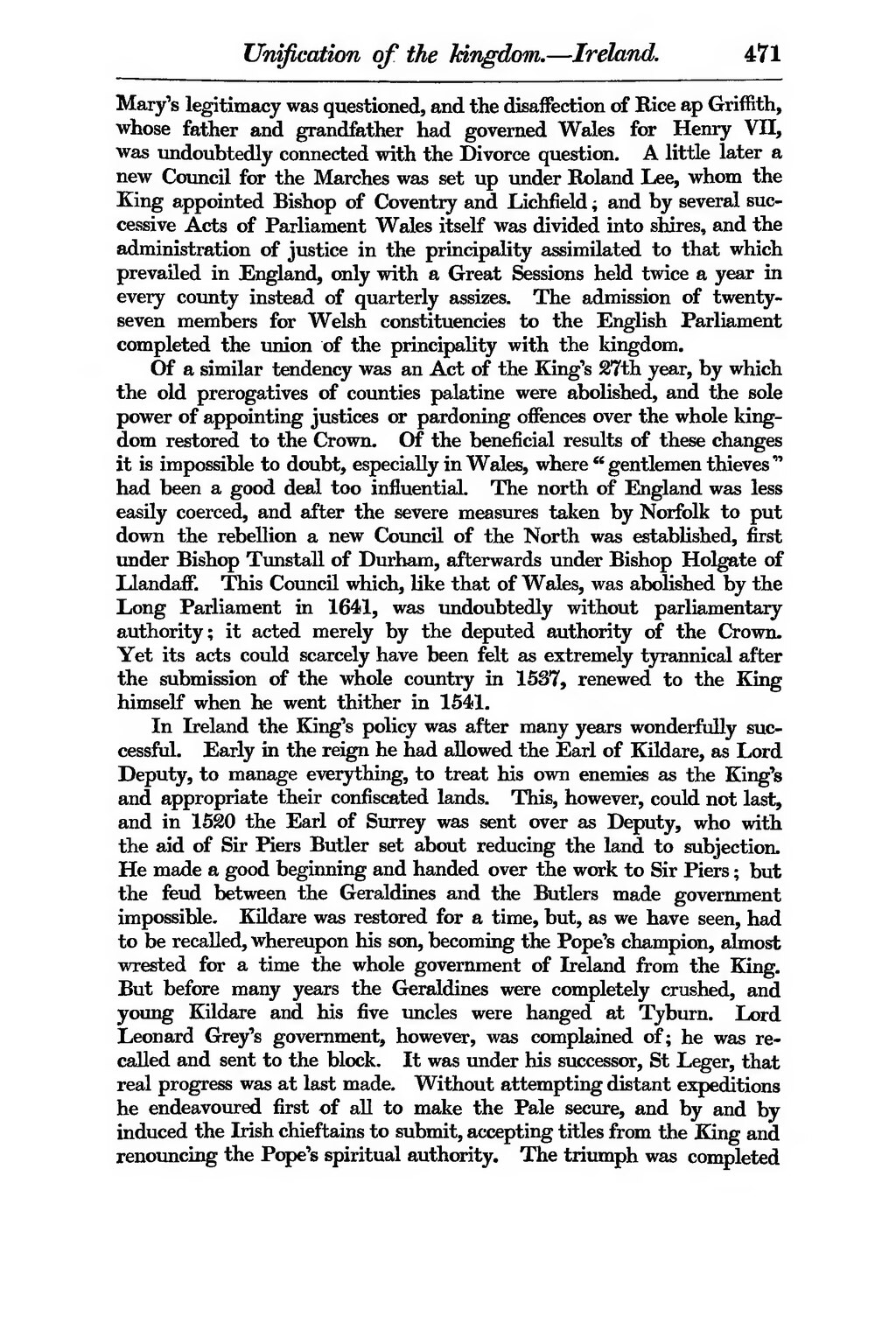Mary's legitimacy was questioned, and the disaffection of Rice ap Griffith, whose father and grandfather had governed Wales for Henry VII, was undoubtedly connected with the Divorce question. A little later a new Council for the Marches was set up under Roland Lee, whom the King appointed Bishop of Coventry and Lichfield; and by several successive Acts of Parliament Wales itself was divided into shires, and the administration of justice in the principality assimilated to that which prevailed in England, only with a Great Sessions held twice a year in every county instead of quarterly assizes. The admission of twenty-seven members for Welsh constituencies to the English Parliament completed the union of the principality with the kingdom. <)f a similar tendency was an Act of the King's 27th year, by which the old prerogatives of counties palatine were abolished, and the sole power of appointing justices or pardoning offences over the whole kingdom restored to the Crown. Of the beneficial results of these changes it is impossible to doubt, especially in Wales, where " gentlemen thieves " had been a good deal too influential. The north of England was less easily coerced, and after the severe measures taken by Norfolk to put down the rebellion a new Council of the North was established, first under Bishop Tunstall of Durham, afterwards under Bishop Holgate of Llandaff. This Council which, like that of Wales, was abolished by the Long Parliament in 1641, was undoubtedly without parliamentary authority; it acted merely by the deputed authority of the Crown. Yet its acts could scarcely have been felt as extremely tyrannical after the submission of the whole country in 1537, renewed to the King himself when he went thither in 1541.
In Ireland the King's policy was after many years wonderfully successful. Early in the reign he had allowed the Earl of Kildare, as Lord Deputy, to manage everything, to treat his own enemies as the King's and appropriate their confiscated lands. This, however, could not last, and in 1520 the Earl of Surrey was sent over as Deputy, who with the aid of Sir Piers Butler set about reducing the land to subjection. He made a good beginning and handed over the work to Sir Piers; but the feud between the Geraldines and the Butlers made government impossible. Kildare was restored for a time, but, as we have seen, had to be recalled, whereupon his son, becoming the Pope's champion, almost wrested, for a time the whole government of Ireland from the King. But before many years the Geraldines were completely crushed, and young Kildare and his five uncles were hanged at Tyburn. Lord Leonard Grey's government, however, was complained of; he was recalled and sent to the block. It was under his successor, St Leger, that real progress was at last made. Without attempting distant expeditions he endeavoured first of all to make the Pale secure, and by and by induced the Irish chieftains to submit, accepting titles from the King and renouncing the Pope's spiritual authority. The triumph was completed
